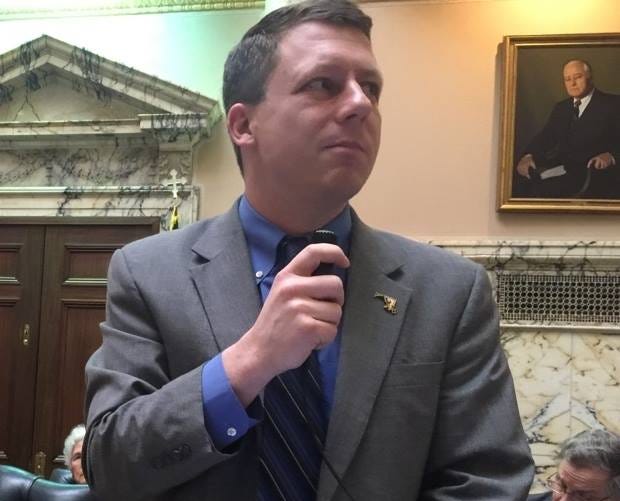Former Teacher Appointed to Key Education Policymaking Role
Del. Eric Luedtke named chair of House Education Subcommittee

There’s a new House Education Subcommittee Chair in Annapolis — and he just happens to be a former Montgomery County Public Schools teacher. Earlier this week Del. Eric Luedtke (D-District 14), a Maryland public schools graduate who taught for 10 years in two high-poverty middle schools, was named to the position by Speaker of the House Michael Busch.
Del. Luedtke steps into a position vacated by Del. Anne Kaiser (D-District 14), who Speaker Busch appointed as the new chairwoman of the House Ways and Means Committee last week.
Del. Luedtke took a moment to share his thoughts on his new role, top priorities, and what educators can bring to Annapolis.
Congratulations on being named the Chair of the House Education Subcommittee. What is your role in that position?
Thank you. I will be the point person in the House on education issues, and will be responsible for shepherding bills through the legislative process. That includes developing amendments to bills in subcommittee, ensuring that good bills pass committee, and defending them on the House floor, all while working with other legislators and stakeholders.
What issues are your priorities as chair?
We have two challenges. On the one hand, we have to fight back against wrong-headed education policies like the overuse of standardized testing and Larry Hogan’s continued efforts to spend more taxpayer money on private schools. But it is not enough to oppose bad policies that fly under the false flag of ‘reform.’ We need to address very real problems in education. Our work needs to be based in research and reality, not rhetoric. In particular, we need to improve the quality of teacher education programs, work to ensure teachers have the time they need to do their jobs, and most importantly, identify ways to close the achievement gaps.
We have to fight back against wrong-headed education policies like the overuse of standardized testing and Larry Hogan’s continued efforts to spend more taxpayer money on private schools.
Can you trace your journey from the classroom to the legislature? How has your education background informed your work as a legislator?
I ran for office because of what I experienced in the classroom. As a teacher, you can’t help but see the challenges your students go through. I realized pretty quickly that I could be the best educator in the world, and yet could not solve the many issues that affect the lives of kids, from poverty to poor housing, to abuse and neglect. I also saw too many bad education policies implemented by politicians who hadn’t seen the inside of a school since they were students. These experiences informed my decision to run for office and continue to inform my work as an educator. So I ran for office because I thought government could do a better job for our kids, and won because of a lot of hard work and support from fellow educators and other supporters.
The skills I learned as a teacher also prepared me for this work. The single most important skill for a legislator is to be able to build relationships with your colleagues. There are 188 legislators in Annapolis, and none of them can get the work done on their own. Building relationships with students is the core of the work of a teacher, and I am a better legislator for having learned how to do that in the classroom.
The skills I learned as a teacher prepared me for this work.
Besides running for office, what are the best things that educators can do to make sure that pro-public education legislation gets support in Annapolis?
Be loud. Write letters and emails. Ask your co-workers to write letters and emails. Get to know your legislators outside of session, build a relationship, and then bug the heck out of them during session. We are a citizen legislature— many of us are not policy experts on every single issue. As an educator, you are a policy expert. So most legislators will listen to you, and if they’re hearing from a lot of people, that can change how someone votes.
And finally, when the next election comes around in 2018, don’t just vote for pro-education candidates. Volunteer for them. Get your neighbors to vote for them. Hand out apple ballots at the polling place. Democracy only works if the people step up and get engaged.

